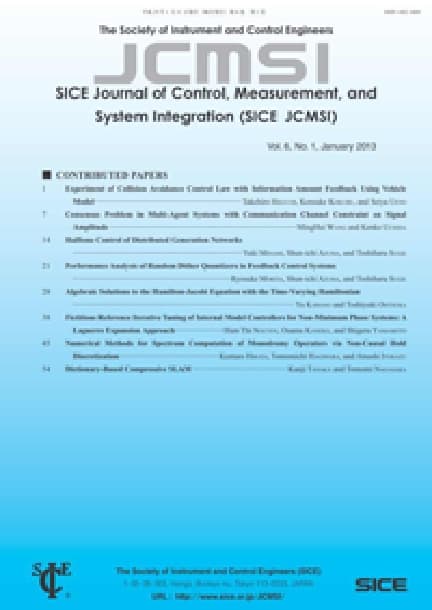Adaptive Multi-Point Temperature Control for Microwave Heating Process via Multi-Rate Sampling
Shan LIANG, Tong LIU, Junrong SONG, Qingyu XIONG, Kai WANG
pp. 173-181
DOI:
10.9746/jcmsi.12.173Abstract
Microwave heating has been gradually extended to industrial material process from domestic microwave ovens because of its substantial advantages such as high-efficiency, pollution free, and selective heating. Unfortunately, the drawback of the temperature non-uniformity, which may cause thermal runaway, becomes an obstruction for the development of microwave energy. Besides, a common problem associated with microwave heating systems is that the speed of microwave power transmission is faster than the temperature detection period. Thus, to ensure the global temperature uniformity and to enhance the system adaptivity for deviation of the temperature detecting position in the microwave heating system with input constraints, a multi-rate simple adaptive multi-point temperature control strategy based on almost strictly positive real conditions is proposed, where the use of multi-rate sampling and lifting technique is to solve the case that the system has less inputs than outputs. Finally, simulation results demonstrate the effectiveness of the proposed control strategy.









